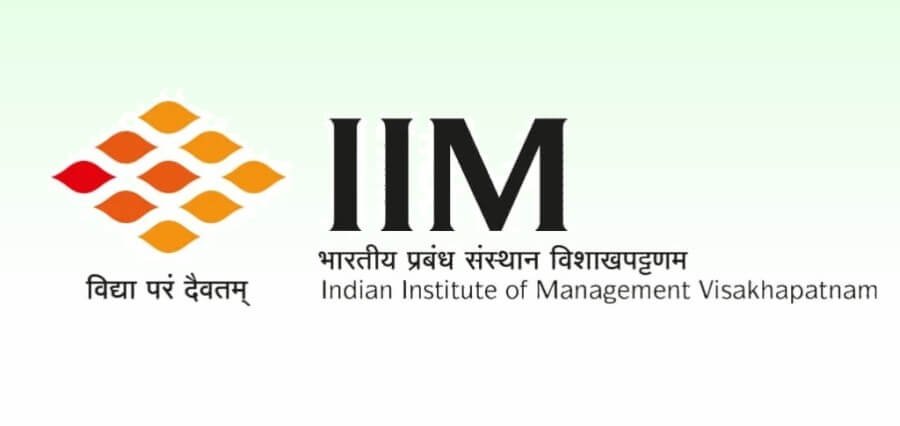Data Science, a field born from the convergence of computer science, mathematics and statistics, is dedicated to extracting value from data. This discipline plays a crucial role in driving transformative change across various sectors. To push the boundaries of what data science can achieve, educational institutions must harness the combined strengths of industrial engineering and operations research.
At the forefront of this integration is The Paari School of Business at SRM University-AP. Paari School of Business offers a comprehensive Data Science and AI programme designed to equip students with practical skills, industry certifications and job placement support. This programme bridges academia and professional practice, ensuring that students are well-prepared to meet industry demands.
The primary focus of Data Science is on converting raw data into actionable insights, with the value of these insights varying based on their end users. For technology companies, these insights can translate into increased revenue; for policymakers, they can lead to informed policy decisions; and for scholars, they contribute to new discoveries.
Prof. Bharadhwaj Sivakumaran—Dean of Paari School of Business—spotlights the institute’s dedication to shaping the next generation of data scientists. By encouraging technological innovation and fostering strategic collaborations, the school ensures that promising ideas are nurtured and brought to market. This approach amplifies the societal impact of data science, positioning Paari School of Business as a leader in advancing the field and its real-world applications.
Innovations in Business Analytics
SRM University-AP was founded in 2017, with the Paari School of Business, initially named the School of Entrepreneurship and Management Studies, established in 2020. The school began with BBA and MBA programmes. Initially, the Business Analytics major was not offered. However, an MBA in Data Science was later introduced and subsequently merged into a general MBA programme with Business Analytics/Data Science as a major.
Full-time faculty were hired to support this area, and notably, several courses are taught by visiting faculty from the industry. Over time, specialised courses were introduced not only in analytics, such as Predictive Analytics and Machine Learning but also in related fields like AI and Blockchain.
The Power of Data
The inception of the Data Science program at Paari School of Business was fueled by the simple yet profound realization that ‘data is the new oil.’
The digital age is where data permeates every aspect of our lives, from purchasing goods online to mobile recharges and even tax payments. The abundance of data presents an invaluable resource, making data science indispensable for analyzing this information and deriving actionable insights. These insights empower managers to make better-informed decisions, ultimately improving the quality of strategic choices in any organization.
This foundational idea drove the establishment of the Data Science program at SRM University-AP’s Paari School of Business. However, as the world of data has grown more complex and interconnected, so too has the vision of the program. Initially centered around data analysis, it has now evolved to encompass all key areas of management—Finance, Marketing, HR, and Operations—reflecting the interdisciplinary nature of data science today.
With the rise of Artificial Intelligence (AI), the program’s scope continues to expand, allowing the integration of AI into data science to push the boundaries of what’s possible. This growth represents Paari School of Business’s commitment to staying at the forefront of the ever-evolving data science landscape, ensuring that its students are prepared to harness the full potential of data for impactful decision-making.
The Role of Datasets in Business Research Methods
Firstly, statistics is considered the building block for analytics. At SRM University-AP, the Basic Statistics course is taught by faculty from the Mathematics department rather than the Management department. This provides students with a robust foundation in statistics that they can apply in their practical approaches.
Secondly, the curriculum includes courses such as Business Research Methods, where faculty provide datasets from various fields including Finance, Marketing and HR.
Thirdly, the programme offers specialised courses in areas such as HR Analytics, Marketing Analytics, Supply Chain Analytics, and Financial Analytics. This comprehensive approach ensures that students gain a well-rounded understanding of analytics across different disciplines.
Bridging the Gap in Data Analysis and Communication
At Paari School of Business, Data Science encompasses more than just numerical analysis. It involves examining patterns, making inferences and providing recommendations, including the analysis of non-numerical data such as text. As future data science managers, students must excel in presenting their findings and convincingly communicating the accuracy and reliability of their recommendations to clients.
To address this, Paari School of Business’s Data Science curriculum integrates qualitative research, text mining, data visualisation, and spreadsheet modelling. Faculty places a strong emphasis on drawing actionable insights from data and formulating clear recommendations.
Additionally, communication is a core component of the curriculum, alongside courses in Leadership and Organizational Behaviour. This comprehensive approach ensures that the school’s data science students are not only adept in technical skills but also excel in soft skills, preparing them to be well-rounded professionals in their field.
Integrating Hands-on Learning
Paari School of Business ensures that students in its Data Science program gain practical, hands-on experience through a variety of real-world applications. The program integrates several key components that immerse students in industry-relevant learning:
- Industry-experienced Visiting Faculty: Courses are taught by visiting faculty from leading global companies such as Intel and Bank of America, exposing students to real-world challenges in data science.
- Real-world Datasets: Faculty incorporate real-world datasets, sourced from their own research or publicly available online, to offer students a direct application of data analysis in various fields.
- Simulations from Harvard and Leading Publishers: The curriculum includes cutting-edge simulations from Harvard and other leading academic publishers, providing students with interactive, practical learning experiences.
- Industry Certifications: Courses are embedded with certifications from renowned industry platforms like Google and Datacamp, ensuring students gain additional credentials that are valued in the job market.
- Capstone Projects: The program culminates in an applied capstone project, allowing students to work on real-world problems and implement the knowledge they have gained throughout their studies.
These components together ensure that the Data Science curriculum at Paari School of Business is highly practical, industry-aligned and designed to prepare students for the demands of a fast-evolving job market.
Building Proficiency with Essential Skills
The data science curriculum at Paari School of Business is designed to equip students with a wide range of technical skills, ensuring they are proficient in the latest tools and methodologies essential for modern data analysis. The integration of software and analytical techniques ensures that graduates are well-prepared to meet industry demands. Key technologies and tools integrated into the training include:
- Software Proficiency: Students become adept in industry-standard tools such as Excel, JMP/SPSS, R, Python, Power BI, & Tableau.
- Core Skills Developed: The program focuses on essential data science competencies, including:
- Data cleaning
- Data analysis
- Data interpretation
- Handling large datasets
- Presenting information in user-friendly formats
- Analytical Tools and Techniques: Business analytics students gain proficiency in a variety of statistical and analytical methods, including:
- Chi-Square Test, T-Test, Z-Test
- Analysis of Variance (ANOVA) – One-way and N-way
- Simple and Multiple Regression
- Principal Component Analysis and Factor Analysis
- Discriminant Analysis and Logistic Regression (Binomial and Multinomial)
- Cluster Analysis (Hierarchical and K-Means)
- Advanced techniques like Random Forest, Neural Networks and Text Mining
This comprehensive training ensures that students not only gain theoretical knowledge but also hands-on experience with the latest technologies, making them well-equipped to tackle complex data challenges in various industries.
The Foundations of Excellence
At the heart of Paari School of Business’s Data Science program is its distinguished faculty, who bring a wealth of global expertise and academic excellence. With PhDs from prestigious institutions such as the University of Maryland, College Park and India’s own IIT Kharagpur, the faculty are equipped to deliver a high level of instruction, even in traditional courses. Their deep academic knowledge ensures that students receive a robust education grounded in both theory and practice.
Moreover, the faculty’s contribution extends beyond just teaching; many bring unique proprietary datasets from their own research, enriching the classroom experience with real-world data that students can analyze and learn from. This hands-on approach provides an invaluable opportunity for students to engage with data in a meaningful way, going beyond surface-level analysis to uncover deeper insights.
The program’s philosophy is not simply about performing data analysis but about deriving actionable insights that can drive better decision-making. Students are trained to interpret data critically, turning raw numbers into strategic recommendations that have real-world implications.
Further setting the program apart are its innovative courses, such as AI in Marketing and AI in HR, which reflect the cutting-edge nature of the curriculum. These courses enable students to explore the transformative role of Artificial Intelligence in specific business domains, ensuring that they stay ahead of industry trends and are well-prepared for the future of work.
Fostering a Culture of Innovation and Research
At the Paari School of Business, fostering a culture of innovation and research is fundamental to its mission. The school employs several key strategies to cultivate this environment:
- Research-centric Environment: Research is embedded in the DNA of the university and the Paari School of Business, encouraging faculty and students to engage in cutting-edge exploration in various application areas of Data Science including tourism, healthcare and renewable energy.
- Support for Faculty Research: The institution provides robust support for faculty members to engage in innovative research. This includes access to PhD scholars who assist with research projects, seed grants to fund exploratory studies and extensive e-databases along with all necessary software tools.
- High-quality Faculty Recruitment: Faculty members are recruited from highly research-oriented institutions, ensuring that they bring a strong research pedigree and outlook that enriches the academic environment.
- Involvement of Students: Faculty are actively encouraged to involve Under-graduate (UG) and Post-graduate (PG) students in their research endeavours, providing students with valuable hands-on experience while contributing to ongoing projects.
Exploring the Unique Learning Environment
Paari School of Business creates a distinctive learning environment through a range of hands-on opportunities and industry connections. Students benefit from engaging in live industry projects and gaining valuable real-world experience.
Additionally, the school’s faculty comprises seasoned professionals from leading companies such as Intel, Bank of America and boutique analytics firms, ensuring that education remains closely aligned with current industry trends.
Paari School of Business further enriches the learning experience by hosting events like ‘Trending Issues in Management,’ where students gain insights from senior industry professionals. The summer internship program also provides students with the chance to apply their knowledge in practical settings, bridging the gap between academic learning and professional practice.
Benefits of an Industry-aligned Business Curriculum
The curriculum at Paari School of Business is continually updated to reflect industry needs, thanks to its advisory board of senior professionals from companies like Infosys. The Board of Studies, which includes representatives from the analytics domain working for firms such as Cyient Technologies, also contributes to maintaining curriculum relevance.
Moreover, many of Paari School of Business’s full-time faculty members bring significant industry experience, ensuring that students are well-prepared for their professional careers. These strategies collectively enhance the alignment of the curriculum with industry standards and demands.
Internship and Job Placement Support
Paari School of Business takes a proactive approach to ensuring students are well-prepared for the job market, offering robust support through multiple avenues. Here’s how the institute helps students secure internships and job placements in the field of data science:
- Directorate of Corporate Relations and Career Services (CR&CS): A dedicated team at CR&CS is committed to assisting students in securing internships and job placements. They work closely with industry partners to identify opportunities tailored to data science professionals.
- Live Projects with Industry Leaders: The school collaborates with top companies such as Dabur, Cavinkare and Afterthought Feedback Services, offering students the chance to work on live projects. These projects provide hands-on experience, helping students apply their classroom learning to real-world business challenges.
By combining career services support with practical industry exposure, Paari School of Business ensures that its students are equipped with both the skills and the network needed to succeed in the competitive field of data science.
The Importance of Ethics in Modern Business Education
Business Ethics is a mandatory course for all students at Paari School of Business, pointing out the institute’s commitment to fostering ethical awareness. Every analytics course at the school also highlights the importance of privacy, ethics and related issues.
Specifically, the AI and Blockchain course includes a dedicated module on Responsible AI, ensuring that students are well-versed in these critical considerations. Through these components, students are consistently sensitised to the significance of ethical practices throughout their education.
Evaluating Success
Paari School of Business assesses its success through several key metrics, including the number of internships offered in data science, placement rates and the volume of applicants for the data science major. The institute consistently excels in these areas.
A notable achievement includes a recent student who secured a final Placement at a Japanese Company with an annual salary of Rs 31 lakhs. Additionally, the growing number of students opting for the data science major each year reflects the program’s increasing popularity and success.
Impact on Industry and Educational Landscape
The data science programs at the Paari School of Business aim to make a significant impact on both the corporate sector and the broader educational landscape. The anticipated outcomes include:
- Enhanced Managerial Capability: Graduates of these programs are well-trained in the latest tools and technologies in Data Science, equipping them to apply their skills effectively in the corporate sector. As they advance in their careers, they tend to informally teach colleagues, fostering a culture of continuous learning and higher managerial capability within their organizations.
- Influencing Educational Practices: The success of these programs is expected to inspire other educational institutions to learn from the innovative pedagogical approaches employed at the Paari School of Business. By incorporating elements of its curricula, they can elevate the overall quality of Data Science education.
Through these efforts, the Paari School of Business aspires to empower its students while positively influencing the industry and the educational landscape, contributing to a more knowledgeable and skilled workforce in the field of data science.
The Future is AI
Paari School of Business is set to launch an innovative MBA programme in AI, further broadening its academic offerings. In collaboration with the Computer Science and Mathematics departments, Paari School of Business will also introduce an MSc in Data Science.
This multidisciplinary programme will be accessible to students from any undergraduate background and is designed to be groundbreaking. It features extensive involvement from industry experts to ensure a comprehensive and cutting-edge educational experience.
Vision for Future Expansion
Building on its success, the institute is expanding the offerings with innovative new programs, including an MBA in AI and a specialized track in AI-driven business strategy.
These future-forward programs will focus on bridging the gap between AI technology and business leadership, empowering the next generation of professionals to drive organizational transformation. “Our vision is to continue evolving with industry trends, ensuring that our students are always at the cutting edge of AI advancements.”
The Importance of Understanding Data Analysis Principles
Prof. Bharadhwaj offers valuable advice on mastering data analysis. First, it’s crucial to embrace data and analytics rather than approach them with fear. Second, students should prioritise understanding the core principles of data analysis over merely learning software applications. For example, grasping the concepts behind regression models is more important than just knowing how to use them.
At Paari School of Business, there is a strong emphasis on ensuring that students develop a deep understanding of these fundamental concepts. Third, students should focus on deriving meaningful insights from their results and providing actionable recommendations. Fourth, integrating analytics with knowledge from other domains, such as Marketing, HR and Operations, is essential, as data science is not an isolated field.
Finally, students are encouraged to approach their work with enthusiasm and passion, enjoying the process as they apply their skills.





